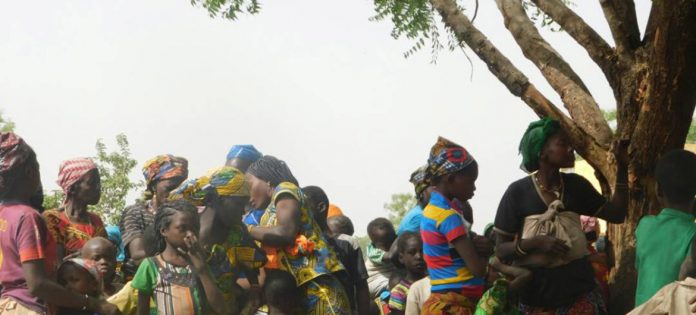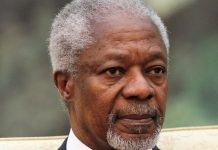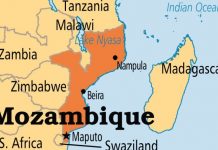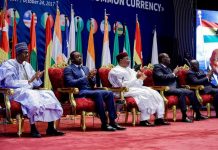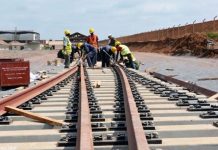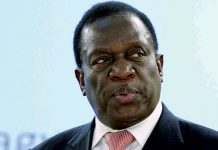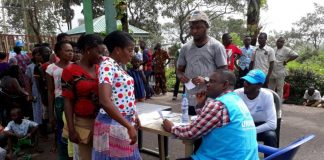The locals refer to the annual drying up of the Ubangi, a tributary of the mighty River Congo, for three months as nature’s magic. The situation throws up a cluster of islands from the river’s torrents before the skies darken and seasonal downpours return.
The river marks the border between Central African Republic (CAR) and Democratic Republic of Congo (DRC), and most of the islands are barren and deserted.
But a few host temporary communities, with dozens of makeshift straw huts and tarpaulins stretched out along their sandy banks, as villagers, displaced from their homes in CAR, take refuge in the transient shores.
The refugees in the temporary islands, mostly fishermen, blame their living condition on ‘the evil’, which refers to the militia called the anti-Balaka, a band of Christian and animist fighters that rose up after Muslim Seleka rebels overthrew the Christian government of President Francois Bozize, in 2013.
In 2014, however, France helped the African Union to lead a military intervention to rout the Seleka rule leaving the Muslim population to face bloody reprisals from the anti-Balaka.
The situation in the CAR went from bad to worse as inter-communal clashes took their toll on the population and rendered a million people homeless. As one of the fishermen, Mathias Kongba, put it, “The anti-Balaka were robbing, torturing, committing crimes. We fled to Congo, it’s a disaster.” Kongba, who left his wife and nine children in the DRC, now represents displaced fishermen on the island. Kongba’s family members are among the almost 200,000 people from CAR who have registered as refugees in DRC, according to figures from the UN refugee agency.
Somehow, the environmental problem at the border has created what looks like a permanent fishermen community in the river islet, which faces the village of Bagobolong 2, east of the capital, Bangui. The people who fled from the anti-Balaka gradually settled between the shores and Zawara. The heads of the villages are excited to welcome the fishermen in the island.






